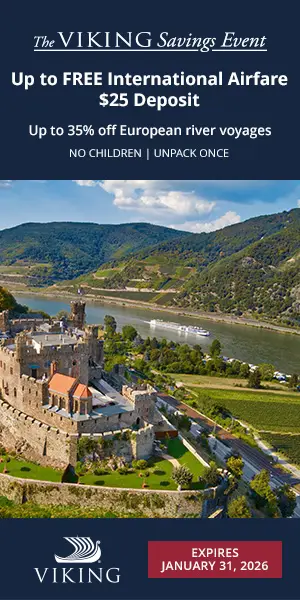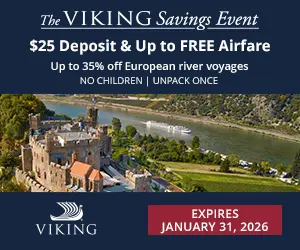How Millennials Are Disrupting the Wellness Travel Market
by Anne Dimon
Global Wellness Summit (GWS).
The Global Wellness Summit (GWS), held at The Breakers Palm Beach in Florida, attracted over 600 delegates from 40-plus countries. The 11th annual event — the world’s premiere gathering of leaders and influencers from the $3.72 trillion global wellness industry — presented a robust program covering every sector of the wellness industry.
Tourism represents just one of these wellness sectors; others are finance, education, environment, medicine and workplace wellness. But it is wellness tourism that is the “the fastest growing sector of the wellness economy,” pointed out GWS Chairman and CEO Susie Ellis in her opening remarks.
According to the Global Wellness Institute’s 2017 Global Wellness Economy Monitor, the wellness tourism segment of the global wellness industry is a $563 billion global industry. While there was not a lot dedicated to that particular sector of the industry at this year’s event, the survey on Millennials was particularly noteworthy.
Well & Good surveys Millennials
In a keynote address entitled “Millennials are not wellness newbies. Understanding what they expect,” Alexia Brue and Melissa Gelula, co-founders of the popular New York-based lifestyle and news publication called Well & Good, presented their recent study on the wellness habits of Millennials. The term generally refers to the generation of people born between the early 1980s and 1990s — and is a cohort that has now surpassed Baby Boomers in numbers.
From a wellness travel perspective and when it comes to spas specifically, they pointed out that Millennials do not want to hear about “fluffy robes”; instead, they want images of experiences where they could see themselves transported. Think “photos of Balinese yoga pavilions,” says Brue or “slide shows of stand-up paddle board yoga, pretty much anywhere.”
Because Millennials already have their at-home “wellness tool kits,” which include access to wellness influencers and fitness experts, their mental attitude is “I don’t need a spa to fix me,” says Gelula. She went on to point out that these “wellness influencers” not only have tremendous social media followings but top-notch credentials and massive communities and, “we believe they are becoming competition for spa dollars.”
Rockstar fitness instructors draw in Millennials
What the survey found was that for this group of 20- and 30-something travelers, snagging a spot at a retreat led by a rockstar fitness expert had greater appeal then going to one of the country’s top spas. “We live in the era of the influencer and we see the power of the influencer eclipsing the power of established brands,” says Brue.
For the survey, Well & Good also reached out to PR agencies representing clients in the travel industry and they received comments such as: “Millennial guests expect way more. Their standards are so much higher than ever before.” Some of the things mentioned that these wellness-savvy travelers want in addition to their own fitness and wellness leaders are activities such as guided meditation with spiritual leaders, forest bathing in remote locales, and generally unique experiences.
What the Millennial woman wants
For travel advisors to keep in mind, here is what the Millennial woman traveling for wellness wants:
- What she already has at home: She’s expecting top fitness talent and healthy “clean” food.
- An experience that she can’t get at home: Experiences in nature and opportunities to unplug with things such as challenging hikes and hot springs.
- Properties to take her wellness to a new and deeper place with immersive and unique experiences.
Of the 4,600 women surveyed, 55 percent of respondents said they were taking two to three vacations a year; and “66 percent were planning a wellness getaway within the next 12 months.” Forty percent said they would rather go on a fitness retreat with their fitness instructors; while 55 percent wanted to go to a place like Canyon Ranch or Miraval. Five percent were undecided.
Yes, spas are ahead, pointed out Gelula, but not by a lot. The competition is not other spas, she said, but these wellness influencers in their own massive communities. “This is a huge way that Millennials are disrupting the wellness travel market,” she surmised.
Personalization fuels further disruption
Disruption seemed, in fact, to be a prevailing topic at this year’s Summit. Frits Dirk van Paasschen, author, former CEO of Starwood and self-declared “student of disruption,” says “disruption and change can sneak up in so many different ways” and he added that “the age of disruption, itself, has an effect on our own wellness.”
He says “personalization,” for instance, is a force of disruption that affects many branded businesses, including those in the travel industry. In the past, he says, “bespoke travel planning was handled by individual travel agents, but looking ahead, trip planning will be enhanced by predictive analytics in the same way Netflix recommends movies and Amazon suggests other products to buy. Already Airbnb has begun to do this.” He predicts that these types of recommendation platforms, which are costly to build and market, will likely drive further consolidation in the travel industry.
The 12th annual Global Wellness Summit will be held Oct. 6-8, 2018 in Technogym Village in Cesena, Italy,
Anne Dimon is Travel Market Report’s wellness travel columnist and the founder/editor of www.traveltowellness.com. Follow her on Twitter or Instagram @AnneDimon.






















